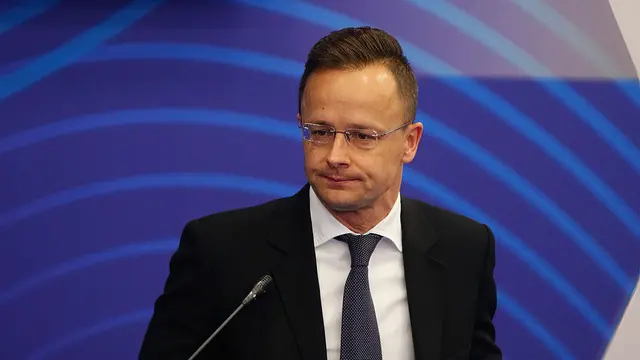Any move to decouple, or even de-risk, from China would be an act of "suicide" for Europe, Hungary's Minister of Trade and Foreign Affairs Peter Szijjarto said Tuesday at the World Economic Forum's annual conference in north China's Tianjin Municipality.
As China is the largest source of EU imports and the third-largest buyer of EU goods in 2022, Szijjarto said that curtailing ties with Beijing would essentially kill the region's economy. "How could you decouple without killing the European economy?"
He told a reporter from CNBC that Hungary does not view China as a threat or a risk, but as a country with which, "if you cooperate, you can take a lot of benefit out of it," and therefore he sees no reason for "de-risking."
He also said that there's a big gap between the political perception and the reality on the ground, adding the political atmosphere in Europe is "very ideological, very emotional," but treating China as a rival was futile and European leaders should face up to be more rational about the "reality."
Beijing is Budapest's largest trading partner outside of the European Union and its number-one investor so far this year. The majority of last year's inflow was due to a $7.6 billion investment, Hungary's largest ever, by Chinese battery maker Contemporary Amperex Technology Co., Ltd. in a new factory in the country. The plant is expected to service automakers with factories in Hungary, including Mercedez Benz, BMW and Volkswagen.
Szijjarto said the big investment coming to Hungary is because of the presence of German carmakers in the country, so when the German foreign minister speaks about decoupling, the CEOs of German carmakers called him to convince their Chinese suppliers to come to Hungary. He added that decoupling would be very harmful to the German economy.
"It's obvious that if you want to compete with China, if you want to look at China as a rival to us, then we Europeans will lose on it," he said. "Why don't we come back to the basis of rationality, common sense, reality and pragmatism, and why don't we start to make an even closer relationship with China than before."
At Tuesday's forum, Chinese Premier Li Qiang also voiced strong opposition against the "de-risking" strategy to reduce dependence, saying it's a pseudo-proposition as globalization has made countries interdependent and brought benefits to all.
Li said that economic globalization is a historical trend, and he noticed there is a consensus that countries need to abandon the zero-sum game mentality and return to the track of win-win cooperation during his recent trip to Germany and France.
If there are some risks in a certain industrial chain, it cannot be decided by the government, but by enterprises, Li said, adding China firmly opposes politicizing economic and trade issues. Li hopes that the world will find more common interests, develop their own economies, and increase the size of the economic pie so that everyone can be better off.
(CGTN)
 简体中文
简体中文

